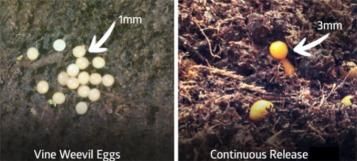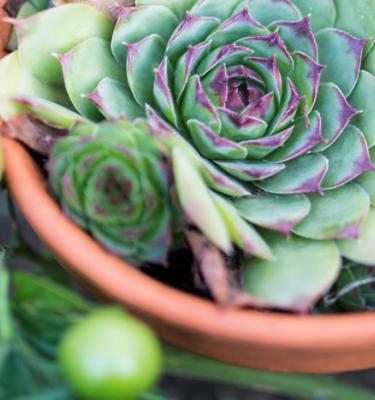Most asked questions about
Soil, compost & bark
It is highly likely that the little round ‘eggs’ are in fact smart release plant food granules and not vine weevil eggs.
For a quick comparison, vine weevils/slug eggs are white and approximately 1mm in diameter whilst plant food granules are 3mm in diameter.

The plant food is ever so clever and releases nutrients when weather conditions are perfect for plant growth i.e. when it is warm and moist, and feed for up to 6 months. Find out more about Miracle-Gro Continuous Release.
These plant food granules deliver the great performance you expect to see with our Miracle-Gro range of composts, so it really is important to make sure they are not removed.
If you find anything out of the ordinary in your compost, we would like one of our team to deal with this enquiry so please click the ‘email us’ button and a member of our care line will be in contact with you shortly.
We always advise using fresh compost for any new pots or containers. Any feed that was in the compost will have been washed away but also there may be a disease or pest in that compost that may affect any new plant. You can always spread old compost onto a bed a border and lightly fork it in.
Ericaceous compost is specially formulated for acid loving plants such as Rhododendrons, Azaleas and Camellias. These plants need the soil to have a pH of 6 or lower. The added iron in the compost means that other plants that prefer an alkaline soil with a pH above 7 will not thrive in an ericaceous compost, so can eventually become yellow and die. For this reason we recommend that for all non-acid loving plants you should use an All Purpose Compost.
For more information on the different types of soil click here.
Sometimes when you open a bag of compost you may notice a layer of white mould on the top or part way through. Although unattractive this is in no way harmful to you or your plants and is caused by a saprophytic fungus that feeds on dead and decaying matter and is in fact essential to healthy plant growth. There is not a problem with the compost and it is safe to use on all plants including fruit and veg.
When compost bags are stored outside for any length of time moisture always has a way of getting in especially as our compost bags have breathing holes in them. This moist environment encourages the fungus to grow especially when there is woodchip, bark or green waste in the mix. The best way to dissipate the mould is to open the bag fully, mix it up and let the air get to it.
If using this compost for indoor plants make sure that you are allowing your compost to dry out between watering as this will help prevent the white mould coming back. Make sure you have good circulation between pots if you have a large group together and don’t allow plants to sit in water.
Couldn't find the answer to your question?
Call us
Opening hours
March to October
Monday to Friday, 8 AM - 6 PM
November to February
Monday to Friday, 9 AM - 5 PM
Write to us
Evergreen Garden Care (UK) Limited
Unit 3, Cefn Coed Parc
Nantgarw
Cardiff CF15 7QQ
